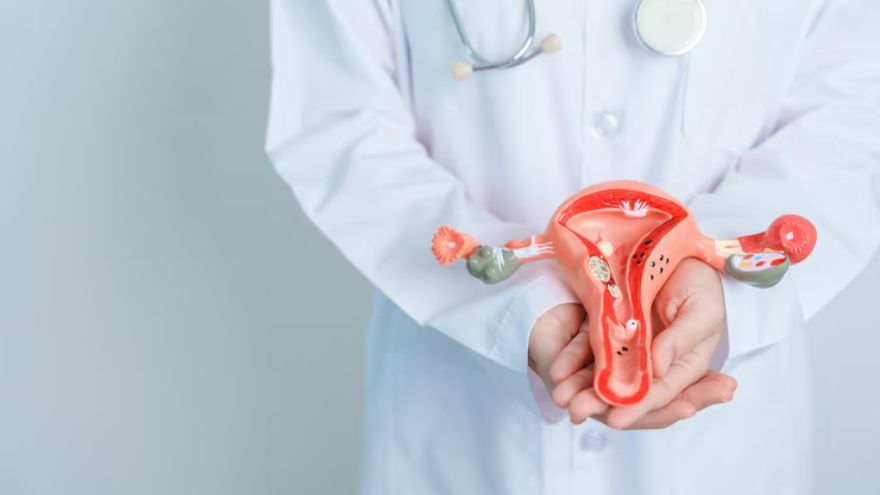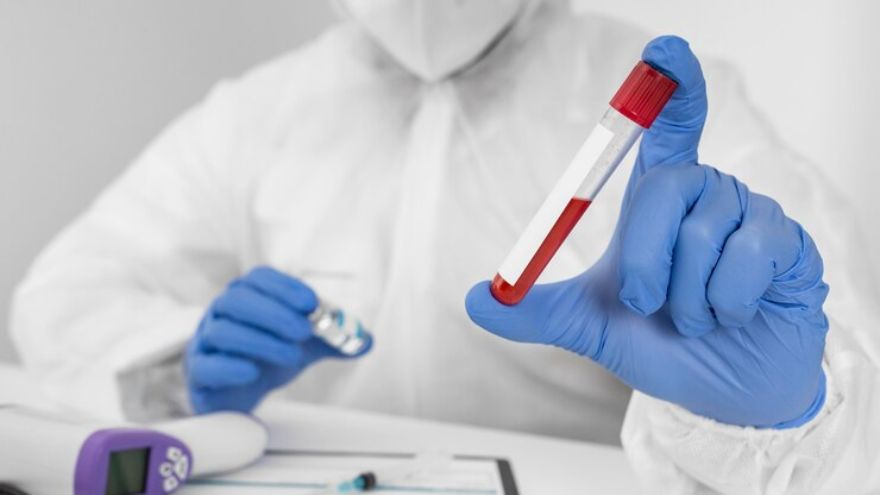
Polycystic Ovary Syndrome (PCOS) is a complex endocrine disorder affecting approximately 10% of women of reproductive age worldwide. Despite its prevalence, the condition remains widely misunderstood and often misdiagnosed. This syndrome encompasses a spectrum of symptoms and manifestations, making each case unique and challenging to treat.
What is PCOS?
PCOS is a hormonal disorder characterized by prolonged or infrequent menstrual periods, excess androgen levels, and polycystic ovaries. The condition was first described in 1935 by Stein and Leventhal, who observed a set of symptoms including amenorrhea (absence of menstruation), hirsutism (excessive hair growth), and enlarged ovaries containing multiple cysts. The exact cause of PCOS remains unclear, but it is believed to involve a combination of genetic, environmental, and lifestyle factors.
Symptoms of PCOS
The symptoms of PCOS can vary widely among individuals, but some of the most common include:
1. Irregular Menstrual Cycles: Women with PCOS often experience infrequent, irregular, or prolonged menstrual periods. Some may have fewer than nine periods a year, while others may have heavy bleeding when they menstruate.
2. Hyperandrogenism: Elevated levels of male hormones (androgens) can lead to physical signs such as hirsutism, acne, and alopecia (male-pattern baldness).
3. Polycystic Ovaries: Enlarged ovaries containing numerous small cysts (fluid-filled sacs) can be detected via ultrasound.
4. Weight Gain and Difficulty Losing Weight: Many women with PCOS struggle with weight gain and obesity, particularly around the abdomen.
5. Insulin Resistance: Insulin resistance and hyperinsulinemia are common in PCOS, increasing the risk of type 2 diabetes.
6. Infertility: PCOS is one of the leading causes of infertility due to anovulation (lack of ovulation).
7. Other Symptoms: Women with PCOS may also experience fatigue, mood changes, and sleep apnea.
Causes and Risk Factors of PCOS
While the exact cause of PCOS is unknown, several factors are believed to contribute to its development:
1. Genetics: PCOS tends to run in families, suggesting a genetic component. Specific genes related to insulin resistance and hormone regulation may be involved.
2. Insulin Resistance: Many women with PCOS have insulin resistance, leading to higher levels of insulin in the body. Excess insulin can increase androgen production, disrupting the normal function of the ovaries.
3. Hormonal Imbalances: An imbalance in hormones such as luteinizing hormone (LH) and follicle-stimulating hormone (FSH) can interfere with ovulation. Elevated levels of androgens and estrogen (estrone) are also common in PCOS.
4. Inflammation: Low-grade inflammation has been observed in women with PCOS, which can stimulate polycystic ovaries to produce androgens.
5. Lifestyle Factors: Poor diet, lack of physical activity, and obesity can exacerbate the symptoms of PCOS.
Diagnosis of PCOS
The diagnosis of PCOS is typically based on the Rotterdam criteria, which require two of the following three features:
1. Oligo- or Anovulation: Infrequent or absent ovulation resulting in irregular menstrual cycles.
2. Clinical or Biochemical Signs of Hyperandrogenism: Physical symptoms (e.g., hirsutism, acne) or elevated androgen levels in blood tests.
3. Polycystic Ovaries: Detection of 12 or more cysts in each ovary via ultrasound.
Other conditions with similar symptoms, such as thyroid disorders, hyperprolactinemia, and congenital adrenal hyperplasia, must be ruled out before confirming a PCOS diagnosis.
Complications of PCOS
PCOS is associated with several long-term health risks, including:
1. Infertility: Difficulty conceiving due to irregular ovulation or anovulation.
2. Type 2 Diabetes: Increased risk due to insulin resistance.
3. Metabolic Syndrome: A cluster of conditions including hypertension, high blood sugar, abnormal cholesterol levels, and abdominal obesity, raising the risk of cardiovascular disease.
4. Endometrial Cancer: Chronic anovulation can lead to the buildup of the endometrial lining, increasing the risk of endometrial cancer.
5. Sleep Apnea: Obesity and hormonal imbalances can contribute to sleep apnea.
6. Mental Health Issues: Women with PCOS are at higher risk for depression, anxiety, and eating disorders.
Treatment of PCOS
There is no cure for PCOS, but its symptoms can be managed through a combination of lifestyle changes, medication, and, in some cases, surgery.
Lifestyle Modifications
1. Diet: A balanced diet low in refined carbohydrates and sugars can help manage insulin levels and promote weight loss. High-fiber foods, lean proteins, and healthy fats are recommended.
2. Exercise: Regular physical activity can improve insulin sensitivity, aid in weight management, and reduce the risk of cardiovascular disease.
3. Weight Management: Losing even a small amount of weight (5-10% of body weight) can significantly improve symptoms and regulate menstrual cycles.
Medications
1. Hormonal Contraceptives: Birth control pills, patches, or vaginal rings can regulate menstrual cycles, reduce androgen levels, and improve acne and hirsutism.
2. Anti-Androgens: Medications such as spironolactone can reduce excessive hair growth and acne.
3. Metformin: This insulin-sensitizing drug can help manage insulin resistance and lower androgen levels.
4. Fertility Medications: Clomiphene citrate and letrozole can stimulate ovulation in women trying to conceive. Injectable gonadotropins may also be used in some cases.
5. Other Medications: Eflornithine cream can slow facial hair growth, and isotretinoin may be prescribed for severe acne.
Surgery
In rare cases, laparoscopic ovarian drilling (LOD) may be considered. This surgical procedure involves making small holes in the ovaries to reduce androgen production and stimulate ovulation.
The Importance of Early Diagnosis and Comprehensive Care
Early diagnosis and comprehensive management of PCOS are crucial for reducing the risk of long-term complications and improving quality of life. Women with PCOS should work closely with healthcare providers to develop a personalized treatment plan addressing their unique symptoms and health goals. Regular monitoring of blood glucose, lipid levels, and blood pressure is essential to detect and manage associated health risks.
Psychological and Emotional Impact of PCOS
The psychological and emotional impact of PCOS should not be underestimated. Many women with PCOS experience frustration and distress due to the chronic nature of the condition, its impact on physical appearance, and the challenges related to fertility. Support from healthcare professionals, counselors, and support groups can be invaluable in helping women cope with the emotional aspects of PCOS.
Research and Future Directions
Ongoing research into the causes and treatments of PCOS is essential for advancing our understanding of this complex disorder. Areas of interest include the genetic basis of PCOS, the role of the gut microbiome, and the development of more effective treatments targeting the root causes of the syndrome.
Conclusion
Polycystic Ovary Syndrome is a multifaceted disorder requiring a comprehensive approach to diagnosis and management. While there is no cure, lifestyle modifications, medications, and supportive therapies can significantly improve symptoms and reduce the risk of complications. Raising awareness and providing education about PCOS are crucial steps toward better outcomes for affected women. Continued research and advancements in medical understanding will hopefully lead to more effective treatments and, ultimately, a cure for PCOS.
Frequently Asked Questions (FAQs) about Polycystic Ovary Syndrome
1. What is PCOS?
Ans. PCOS, or Polycystic Ovary Syndrome, is a common hormonal disorder that affects women of reproductive age. It is characterized by irregular menstrual periods, high levels of male hormones (androgens), and the presence of multiple small cysts on the ovaries.
2. What are the main symptoms of PCOS?
Ans. The main symptoms of PCOS include:
- Irregular menstrual cycles (infrequent, absent, or prolonged periods)
- Excess hair growth on the face and body (hirsutism)
- Acne and oily skin
- Scalp hair thinning or male-pattern baldness
- Weight gain or difficulty losing weight
- Infertility due to irregular ovulation
- Darkening of the skin, particularly along neck creases, groin, and underneath breasts
- Skin tags
3. What causes PCOS?
Ans. The exact cause of PCOS is unknown, but it is believed to result from a combination of genetic, hormonal, and environmental factors. Insulin resistance, inflammation, and excess androgen production are also key contributors.
4. How is PCOS diagnosed?
Ans. PCOS is diagnosed based on the Rotterdam criteria, which require at least two of the following three features:
- Irregular ovulation (leading to irregular menstrual cycles)
- High levels of androgens (determined by physical signs or blood tests)
- Polycystic ovaries (identified through ultrasound)
Other conditions with similar symptoms must be ruled out before confirming a diagnosis.
5. Can PCOS be cured?
Ans. There is no cure for PCOS, but its symptoms can be managed through lifestyle changes, medications, and sometimes surgical interventions. Early diagnosis and treatment can help manage symptoms and reduce the risk of complications.
6. How does PCOS affect fertility?
Ans. PCOS can affect fertility by causing irregular ovulation or anovulation (absence of ovulation), making it difficult for women to conceive. However, with appropriate treatment and lifestyle changes, many women with PCOS can become pregnant.
7. What are the treatment options for PCOS?
Ans. Treatment for PCOS may include:
- Lifestyle modifications: diet changes, regular exercise, and weight management
- Medications: hormonal contraceptives, anti-androgens, metformin, and fertility medications
- Surgery: in rare cases, laparoscopic ovarian drilling (LOD) may be considered
8. What lifestyle changes can help manage PCOS symptoms?
Ans. Key lifestyle changes include:
- Adopting a balanced diet low in refined carbohydrates and sugars
- Increasing fiber intake and consuming lean proteins and healthy fats
- Engaging in regular physical activity to improve insulin sensitivity and manage weight
- Maintaining a healthy weight, as even modest weight loss can significantly improve symptoms
9. What complications are associated with PCOS?
Ans. PCOS can lead to several long-term health risks, including:
- Infertility
- Type 2 diabetes
- Metabolic syndrome
- Cardiovascular disease
- Endometrial cancer
- Sleep apnea
- Mental health issues such as depression and anxiety
10. How does PCOS affect mental health?
Ans. PCOS can have a significant impact on mental health. Many women with PCOS experience frustration, anxiety, and depression due to the chronic nature of the condition, its impact on physical appearance, and fertility challenges. Psychological support and counseling can be beneficial.
11. Is PCOS hereditary?
Ans. PCOS tends to run in families, suggesting a genetic component. Women with a family history of PCOS are at a higher risk of developing the condition.
12. What role does insulin resistance play in PCOS?
Ans. Insulin resistance is common in women with PCOS and leads to higher insulin levels in the body. Excess insulin can increase androgen production, disrupting the normal function of the ovaries and contributing to symptoms such as irregular menstrual cycles and hirsutism.
13. Can women with PCOS have a normal pregnancy?
Ans. Yes, many women with PCOS can have normal pregnancies, although they may face challenges conceiving due to irregular ovulation. With appropriate treatment and management, including fertility treatments if necessary, many women with PCOS can successfully become pregnant and have healthy pregnancies.
14. What are the latest research developments in PCOS?
Ans. Ongoing research into PCOS includes studies on the genetic basis of the condition, the role of the gut microbiome, and the development of new treatments targeting the root causes of PCOS. These advancements aim to improve diagnosis, treatment, and ultimately find a cure for PCOS.
15. How can I manage PCOS if I am not trying to conceive?
Ans. Management of PCOS for women not trying to conceive focuses on regulating menstrual cycles, reducing androgen levels, and managing symptoms such as acne and hirsutism. This may involve hormonal contraceptives, anti-androgen medications, and lifestyle modifications.
16. Are there any natural remedies for PCOS?
Ans. While lifestyle changes such as diet and exercise are natural approaches that can significantly improve PCOS symptoms, there is limited scientific evidence supporting the effectiveness of other natural remedies. It is essential to consult with a healthcare provider before trying any new treatments or supplements.
17. Can PCOS symptoms change over time?
Ans. Yes, PCOS symptoms can change over time, especially with age and lifestyle modifications. Some women may experience a decrease in symptoms, while others may continue to face challenges. Regular monitoring and ongoing management are essential.
18. How can I support a friend or family member with PCOS?
Ans. Supporting someone with PCOS involves understanding their condition, being patient and empathetic, and encouraging them to seek medical advice and treatment. Providing emotional support and helping them adopt a healthy lifestyle can also be beneficial.



